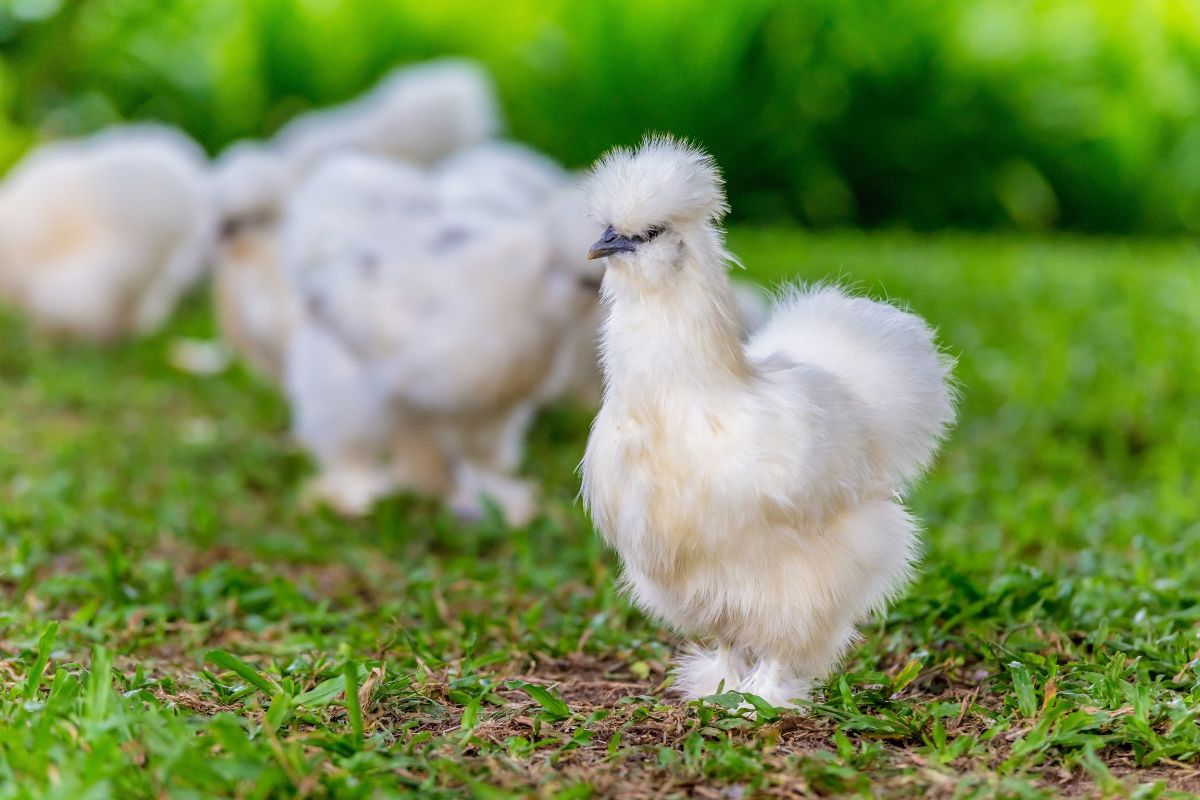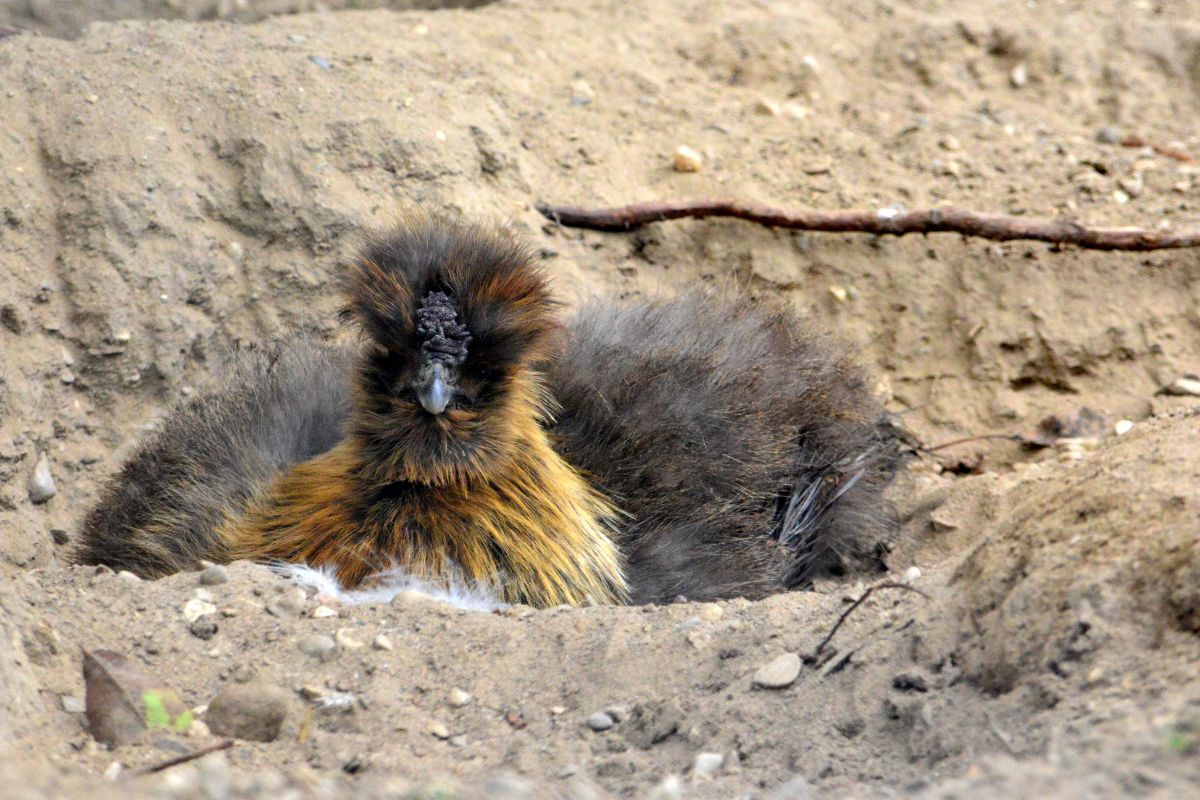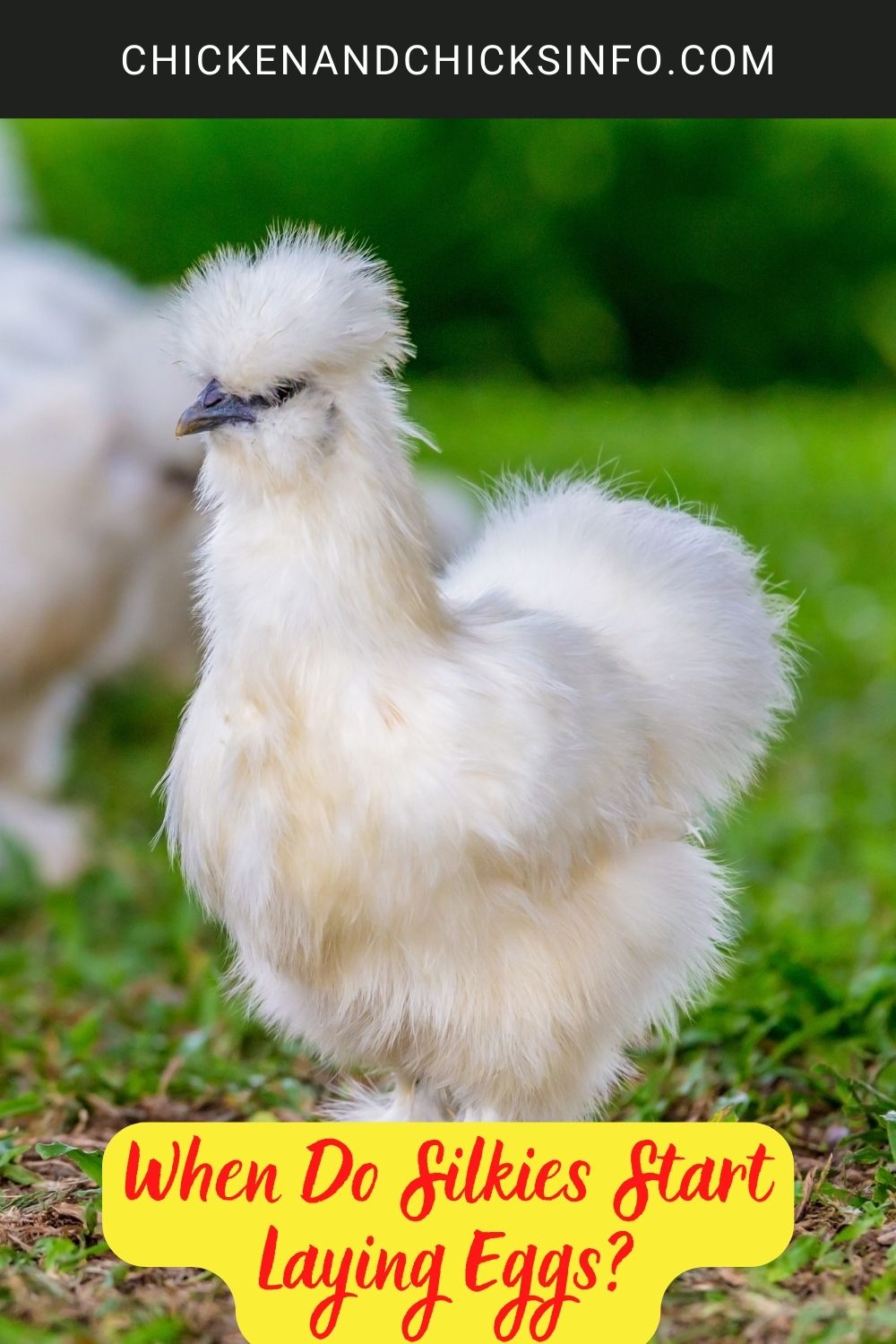
Silkies start laying eggs later than a lot of chicken breeds. Typically, they will not lay their first egg until they are at least 7 months of age, and it’s often nearer 9-10 months.
Jump to:
Do Silkie Chickens Lay Eggs?
Silkie chickens do lay eggs, yes.
Because they are so unique looking and often used as show birds, a lot of people question if they lay eggs.
If you own Silkies along with other hens, you might also wonder if they lay eggs because your other hens are laying and your Silkies aren’t.
This is likely due to the fact that Silkies reach mature laying age a little later than most breeds. While Leghorns can start laying at around 16 weeks of age, for example, you’ll be lucky to see an egg from a Silkie that’s 28 weeks old.
If you do see an egg in their nesting box, it’s going to be a small one and you won’t see another in a hurry too!
They aren’t typically kept for their eggs. Neither for their meat. Silkies are the fun, cuddly, lovable backyard chickens that are more for show and companionship than they are utility.
This video talks you through everything you need to know about Silkies and their egg laying habits:
How Many Eggs Does a Silkie Chicken Lay a Week?

Silkies typically lay around 3-4 eggs a week. You can expect around 100-120 eggs a year.
Part of the reason for this number being so much lower than say Rhode Island Reds or Leghorns, is that they are often broody and this interrupts their laying schedule.
What Color Eggs Do Silkies Lay?
They lay a lovely smooth creme color egg.
This can vary considerably, however. I’ve seen anything from porcelain white to a pinkish color.
If you’ve heard that a chicken’s earlobe color determines the color of the eggs they lay, there is some truth to this.
Silkies are a little different though, as they seem to be in so many ways. They have blue earlobes, almost neon in appearance.
They do not lay blue eggs, however, like Easter Eggers or Ameraucanas.
Why Won't My Silkie Hen Lay Eggs?
If your Silkie hen is old enough or laid eggs before and has now stopped, you need to identify the reason.
Generally speaking, there are 3 main reasons why chickens stop laying eggs. These are:
Not enough daylight - Daylight is what first stimulates a chicken to start producing an egg. They also need around 16 hours of light a day to keep a healthy laying schedule.
This is why chickens typically slow down laying in the winter. If your Silkies are not getting enough natural sunlight, you can add artificial light to their coop.
Environmental conditions - Chickens get easily stressed if they’re not being kept in safe, clean, and good conditions.
Make sure your hens are not overcrowded, worried about predators, pecking each other, or in bad health. Anything less than ideal living conditions needs to be addressed.
Related - How to help your Silkies roost and sleep comfortably.
Nutrition - Producing eggs isn’t easy! Laying hens need a wide range of nutrients. A good layer feed will provide everything they need, which should include around 4 grams and calcium and 18% protein.
It does hurt to add some other protein-rich foods and a calcium enhanced grit or some dried eggshells. They’ll eat as much as their bodies need to produce strong, healthy eggs.
With all these conditions met, as long as they’re not molting and are of age they should produce eggs.
As I explained above, Silkies are not prolific layers. If you’re getting 2-3 eggs a week, this might be all your hen is capable of. Don’t be surprised if you go a few days with no eggs in their nesting box.
Do Silkies Go Broody Often?

Silkies are one of the more broody breeds. They just seem to love sitting on eggs. Their eggs, other hen’s eggs, even artificial eggs!
When a Silkie is broody they stop laying eggs, this is one of the main reasons behind them laying so few eggs.
If you want to incubate and hatch eggs, they are perfect for the job. A lot of backyard flock owners keep a couple of silkies for this very reason.
If you don’t want your Silkies being broody as much, there are some things you can do to try and dissuade this behavior - but be warned, it’s not easy.
First, you need to collect eggs from your coop as soon and as often as possible. No eggs mean nothing to get broody over and sit on.
In addition to this, you have to break them from being broody when you spot them crouching down and squatting.
They are likely to try and defend their position. It’s something you need to manage carefully as not to stress or upset them. But at the same time, you need to move them to try and pull them away.
Some owners put their chickens in a wire bottom cage suspended in the air. The constant airflow beneath them stops them from getting that secure and familiar feel of sitting on eggs and creating a warm nest.
It’s going to come down to you trying different things. Seeing how well your own Silkies react to what you’re doing and how much time and effort you’re able to put in.
Related - How to tell you've got a female Silkie.
In Summary
Silkies typically start laying later than a lot of other breeds and they don’t lay a lot of eggs.
You’ll probably have to wait until they are at least 7 months old before you see your first egg.
They’re not kept for their laying ability. They’re kept as backyard pets because they’re so cute, friendly, lovable, and fun.
The fact that they do lay around 100 creme colored eggs a year is a much-welcomed bonus though.
Silkies are one of the most fun and interesting breeds of chicken. I can’t recommend them enough.





